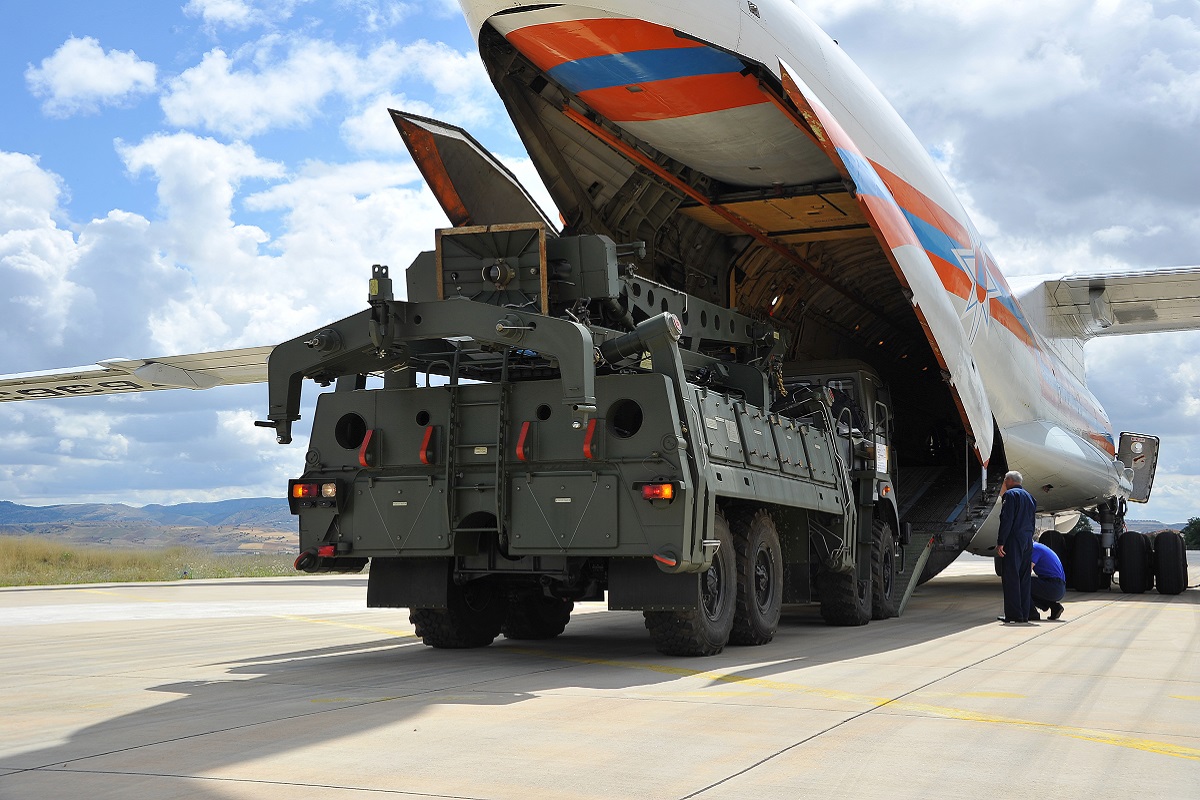A missile can sour relations even when not fired. And so it has been in the case of Turkey’s equation with the United States of America with Friday’s delivery of the first cache of a Russian S-400 missile defence system to Ankara. The development will almost certainly anger the US and the risk of sanctions against the Recip Tayyip Erdogan regime is dangerously real as Washington’s reaction suggests that it is chewing over an economic reprisal.
International relations can be quirky as Donald Trump considers President Erdogan as one of his steadfast allies and has made this evident in several ways. The delivery of parts will continue for several days at the Mürted Air Base near Ankara and the Erdogan government will decide “how it will be used” once the system is made operational, Turkey’s defence industry authority said in a statement.
Advertisement
It is not yet known where the S-400 will be deployed. On closer reflection, it is a conflict within Nato. Turkey, a member of the alliance, claims it was forced to take the unprecedented step of buying the sophisticated Russian equipment in 2017 after the US refused to supply the alternative Patriot missile defence system. For all the bonhomie between Washington and Ankara in an increasingly fractious world, relations are now palpably strained not merely between the two countries but equally within a segment of the Western alliance as well.
The US has warned that Turkey cannot have both the S-400 and US F-35 fighter jets, alternatively offering the Patriot system. It has threatened that the purchase of S-400 will trigger US economic sanctions. But Turkey, which is establishing closer ties with Russia, has refused to bow to pressure from Washington, calling it a matter of national sovereignty. Clearly, the arming of Turkey has assumed a trilateral dimension, with the US and Russia integral to the paradigm.
Although President Trump had expressed sympathy for Turkish compulsions during a meeting with President Erdogan at the G20 meeting in Osaka last month, Washington has repeatedly said that the purchase of S-400 is incompatible with Nato systems. Almost immediately, the deal has caused a flutter in the international roost. Nato is said to be concerned over Turkey’s acquisition of the S-400 missile defence system.
“Interoperability of our armed forces is fundamental to Nato for the conduct of our operations and missions,” has been the official response of the alliance. The US fears that if Turkey integrates the S-400 into its defences, sensitive data about the F-35, a new generation multi-role Stealth fighter, could be accessed by Moscow. US sanctions will deal a crppling blow to the Erdogan regime, much as it has in the case of Iran, helmed by the moderate Hassan Rouhani.









